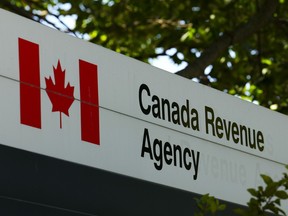To make Wealthtender free for readers, we earn money from advertisers, including financial professionals and firms that pay to be featured. This creates a conflict of interest when we favor their promotion over others. Read our editorial policy and terms of service to learn more. Wealthtender is not a client of these financial services providers.
➡️ Find a Local Advisor | 🎯 Find a Specialist Advisor

Ask an Advisor: How can we navigate financial challenges associated with unexpected events like health issues or economic downturns?


You’ve worked hard all your life. Retirement is supposed to be the next chapter where you do more things on your own terms, not someone else’s. However, unforeseen events still arise that could derail your retirement. Things like sudden health issues, or economic downturns could disrupt your life if you aren’t prepared. Here are a few strategies to help make your retirement rock solid.
- Maintain Your Safety Bucket: Just because you retired doesn’t mean you have no use for emergency funds. Having an adequate emergency fund (safety bucket) actually becomes even more critical during this stage of life. A good target is to have at least 5 years of expenses set aside in bonds and some cash within your retirement accounts. Just like a seat belt is designed to save your life in a car crash, your safety bucket is designed to save your retirement in the event of a market crash. Having these funds helps you by not being forced to pull from stocks when they are down. This also may help your accounts recover more quickly.
- Update Your Estate Plan: Unexpected health issues can have a huge impact on your retirement plans. While this is by far the least “fun” area to work on, it is one of the most important things you can do for your retirement. Building a sound estate plan with your attorney can help reduce feelings of hurt and confusion for any potential heirs. If you have a large estate, estate planning via trusts can help prevent you from overpaying the government in taxes after you’ve gone. Whether you want to leave funds to heirs, or some other cause, it needs to be in writing!
- Diversify Income (Tax) Sources: Relying solely on pre-tax retirement savings such as 401(k)s or Traditional IRAs may leave you vulnerable later to a common retirement torpedo. Taxes. Being able to pull income from a variety of taxable sources may help you pay considerably less in taxes over your retirement. Having rental income, Roth accounts, and regular brokerage accounts provides a lot of levers you can pull. See an article explaining how this works here.
- Know Your Numbers: As you begin easing into retirement, it’s important to examine what your financial needs actually are. Having an accurate picture of your spending needs is, by far, one of the most important aspects of your retirement plan. Knowing what you need to live and still accomplish all your goals can help make the answers to your other retirement questions easy. If you know your spending, you know how much you need to invest, how much you can safely withdraw from retirement accounts, and where you can safely “tighten your belt” when things get rough.
- Stay Informed: Be proactive and stay on top of how proposed law changes could affect your retirement. Expect a major tax or estate law change every 5 to 10 years that could impact your taxes and/or estate plan. If those topics of research don’t interest you, consider item #7.
- Plan for Longevity and Healthcare Costs: With longer life expectancies, planning for longevity and healthcare costs is crucial in retirement. Consider factors such as potential long-term care needs, prescription medications, and medical expenses not covered by insurance. If you don’t include these areas in your planning, your future could look very different than the one you were expecting.
- Seek Expert Help: Planning around your retirement can get incredibly complex. Consider consulting with a financial advisor who specializes in retirement planning to help you prepare for unexpected challenges you may not have even been aware of. A skilled advisor can look through your situation and help you find the best path forward. Remember, there is almost always more than one “right” answer. Often times there is a “right” mathematical answer, and a “right” life answer. The advisor is there to help consider both paths and find the best “right” answer with you!
- Don’t Forget Your Own Well-Being: While having stability in retirement is important, don’t forget to prioritize your overall well-being and enjoyment. Spend time doing activities you enjoy and keep you moving. Look for ways to keep your creativity, your connection, and your contribution to your community.
Successfully navigating financial challenges in retirement requires that you be adaptable, resilient, and carefully consider all your options. Having an adequate safety bucket in your retirement accounts, diversifying your income sources, and knowing your retirement needs are essential to a smooth retirement. Even though unexpected events can (and will) arise, having a pre-established financial plan can give you the confidence to face whatever the future may hold.
As the great Benjamin Franklin said, “If you fail to plan, you are planning to fail!”
About the Author


Marcus Blanchard, CFP®, WMCP, ChFC
Helping You NOT Get Killed In Taxes From Capital Gains Or Retirement!
Marcus Blanchard, CFP®, WMCP, ChFC
| Focal Point Financial Planning
Do you have questions about your financial future? Find a financial advisor who can help you enjoy life with less money stress by visiting Wealthtender’s financial advisor directory.
Whether you’re looking for a specialist advisor who can meet with you online or you prefer to find a local financial planner, you deserve to work with a professional who understands your unique circumstances.
Have a question to ask a financial advisor? Submit your question and it may be answered by a Wealthtender community financial advisor in an upcoming article.
This article originally appeared on Wealthtender. To make Wealthtender free for our readers, we earn money from advertisers, including financial professionals and firms that pay to be featured. This creates a natural conflict of interest when we favor their promotion over others. Wealthtender is not a client of these financial services providers.





















Discussion about this post